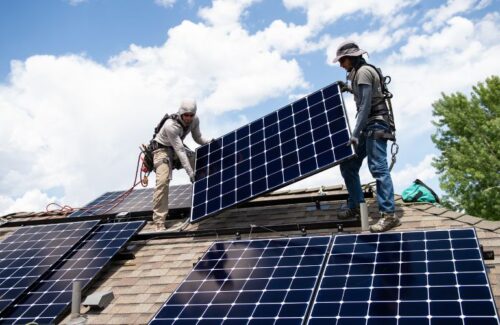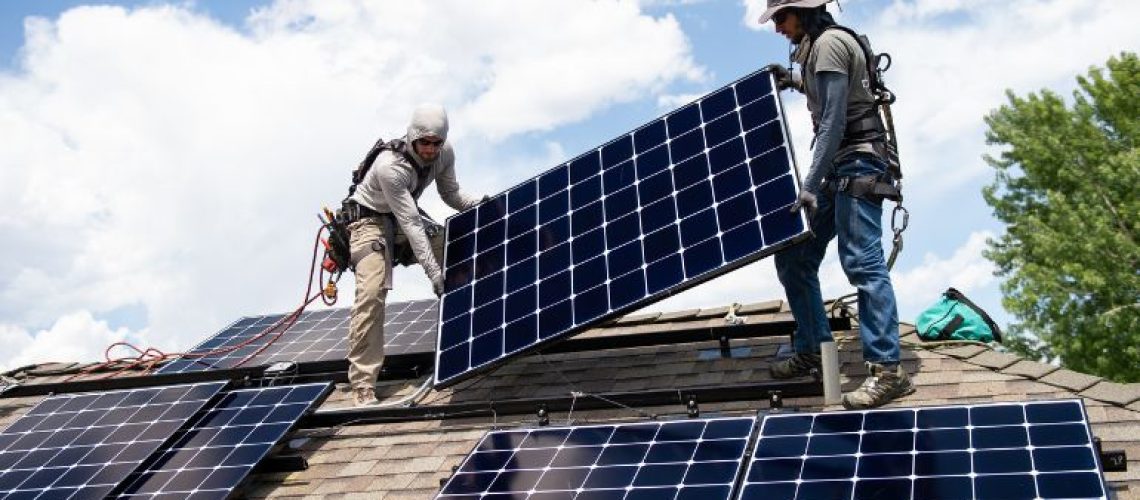A new antidumping/countervailing duty petition has been filed with the U.S. International Trade Commission (USITC) and the Dept. of Commerce concerning silicon solar cells and panels made in Cambodia, Malaysia, Thailand and Vietnam. The petition was filed by the American Alliance for Solar Manufacturing Trade Committee, which includes U.S. solar manufacturers Convalt Energy, First Solar, Meyer Burger, Mission Solar, Qcells, REC Silicon and startup Swift Solar. The committee is represented by D.C. law firm Wiley Rein LLP.

Namaste Solar
“America’s solar manufacturing industry is on the cusp of tremendous growth that will create jobs and change the trajectory of our clean energy transition for decades to come. However, this manufacturing renaissance is being threatened by China’s industrial policy, which has led to massive subsidization in China and Southeast Asia. This is resulting in high volumes of dumping on global markets including the U.S., injuring our domestic producers,” said Tim Brightbill, co-chair of Wiley’s International Trade Practice and lead counsel. “We are seeking to enforce the rules, remedy the injury to our domestic solar industry, and signal that the U.S. will not be a dumping ground for foreign solar products.”
This new petition comes eight months after Commerce did extend AD/CVD to Chinese solar manufacturers working in Southeast Asia. The extended Chinese AD/CVD allows manufacturers that use non-Chinese wafers or at least four solar components (silver paste, aluminum frames, glass, backsheets, EVA sheets, junction boxes) made outside of China to be exempt from the AD/CVD orders. These stipulations have been relatively easy supply chain changes for Chinese companies working in Southeast Asia to complete, moving them out of the violations outlined in the AD/CVD decision.
Today’s petition aims to address the “unfair trade practices by these solar manufacturers in Cambodia, Malaysia, Thailand and Vietnam” directly.
Commerce now has 20 days to determine whether to initiate an investigation. If investigated, the USITC would reach a preliminary determination of material injury or threat of material injury within 45 days, with a final determination expected in spring 2025.
The Solar Energy Industries Association (SEIA), American Clean Power Association (ACP), Advanced Energy United and American Council on Renewable Energy (ACORE) issued a joint statement on today’s petition filing:
We are deeply concerned the AD/CVD petitions will lead to further market volatility across the U.S. solar and storage industry and create uncertainty at a time when we need effective solutions that support U.S. solar manufacturers. We need constructive actions, like the Advanced Manufacturing Tax Credit and other policies, to expand domestic solar manufacturing and deploy clean energy at scale and speed to serve growing electricity demand.
America’s clean energy industry is urging the Biden administration to consider alternative solutions to address the petitioners’ concerns so that we can uplift American manufacturers and maintain a thriving clean energy economy across the value chain.
Solar tracking system manufacturer Array Technologies also expressed its concerns with the new petition:
This case is bad news for clean energy jobs and American solar manufacturing. The threat of duties alone can cause major disruption to the solar industry and hurt manufacturers like Array that rely on a thriving market to do business. The Inflation Reduction Act has super-charged the expansion of the American solar supply chain, which is more than just modules — it’s trackers, inverters, balance of electrical systems and polysilicon manufacturers. We need to keep growing solar deployment to create jobs and bolster our energy independence. More duties will only cause uncertainty and unnecessary project delays, holding the U.S. back in meeting our clean energy deployment and manufacturing goals.Array Technologies CEO Kevin G. Hostetler
This news will be updated throughout the day as more comments are released.



